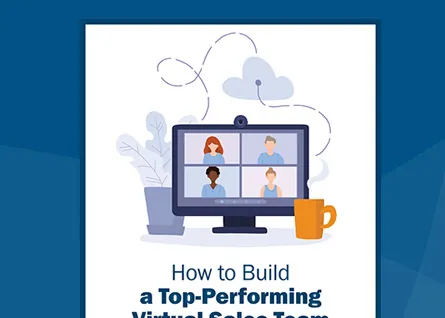5 Tips for Getting Past the Gatekeeper

Without question, gatekeeper is the most intimidating designation in sales. While they may or may not have influence, they are always important.
Of course, they do not guard Medieval castles. But they are the frontline against salespeople and others who seek a decision maker’s time. Often, if the gatekeeper doesn’t like you, you’re not meeting the VIP you need, let alone presenting a pitch. However, far from Cerberus, the snarling three-headed dog at the gates of Hades, they are people. They are receptionists, administrative assistants, and office managers. As such, you must win their favor. Here are five keys to advance past a gatekeeper:
1. Keep Your Introduction Professional
For inexperienced sellers, it’s tempting to see gatekeepers as junkyard dogs. Distract them with a bone, and you might sneak past. Don’t count on it. They may have friendly smiles, but they are serious professionals. They deal with solicitors, scammers, and spammers every day. As such, they will not tolerate funny business from charming salespeople. For gatekeepers, avoid the following:
- Relying on your smile
- Acting salesy
- Putting on airs
- Ego tripping
- Being pushy
Remember, to the gatekeeper, you are no better than the mail carrier. In fact, since they know the mail carrier, you’re several steps below. They don’t care about your company’s reputation or the blue-chip clients you have served. They know nothing about the solutions you offer, and they wouldn’t be impressed if they did.
If you try to outsmart them, you’re less likely to get past them. Worse, once they’re on to you, you may never get another crack at the contact you need.
Before you even begin, be sure to research the gatekeeper’s name and record their name in your CRM. Don’t forget to use it every time you contact them. If you use a script, practice it repeatedly and role-play with others on your team until it sounds like natural, unrehearsed speech. This is how stand-up comedians tell the same jokes night after night while still sounding fresh in their delivery – practice, practice, practice. A second option to consider: jot a few notes of general ideas/things you want to cover and let the conversation flow organically.
Another way of improving your personability is getting to know the gatekeeper on a personal level. Note this isn’t a green light to interrogate or get too personal – keep it light and friendly, and remember the things they tell you. This goes a long way to establishing your authenticity and sincerity.
Important caveat: While being personable and friendly is important, also remember to maintain your professionalism. This isn’t you and your buddy down at the bar chatting away – this is you, a professional, speaking to a fellow professional for business-related purposes.
2. Respect Their Position
As gatekeepers often lack decision-making ability, sellers may dismiss them. Many sales reps tend to treat assistants and receptionists as adversaries, obstacles to be overcome to get through to the person they need access to. This viewpoint is the wrong one to take – it already positions the relationship in a negative light. Keep in mind, not only are gatekeepers human, screening people is one of their primary job duties. Although it may seem like you’re one of only a few trying to reach the decision maker, the reality is, dozens, if not more, sales people are looking to talk to the gated individual every day. If that person accepted every contact that reached out to them, they literally would have no time to do anything else – including the job they’re doing for their employer! Hence, the necessity of gatekeepers, and the importance of your standing out. Don’t take it personally if you can’t get through – just work on building the relationship and keep trying as appropriate. However, this is as shortsighted as it is self-defeating. Aside from being an initial contact, they are professionals. They deserve the dignity of their position. To the higher ups, they are often trustworthy and indispensable. They can wield considerable influence. In fact, disrespecting the gatekeeper is disrespecting the organization. When meeting a gatekeeper, these tips show respect:
- Be polite
- Share a genuine smile
- Ask for assistance
- Express gratitude
All sellers know the adage about attracting bees with honey. You should also know the advantage of amassing contacts and influencers. Sellers should use their people skills to their advantage. As with the C-suite, be personable, courteous, and professional. Also, avoid being overly friendly. Present a positive impression without making them feel like a mark you are using.
3. Make Your Introduction Personal
Today, sellers know the advantages of consultative selling. This approach stresses the value of personal relationships. As buyers become educated and the sales environment changes, they need advisors more than salespeople. Remember, this personal touch doesn’t begin and end with decision makers. It’s also useful with gatekeepers. To make it personal, follow these tips:
- Note and remember names
- Shake hands
- Never miss the chance at a sincere compliment
- Scan their workspace for personal effects
- Engage in conversation
In virtual selling, sellers learned the value of mining personal effects for conversation starters. In the same way, a gatekeeper’s workspace is a treasure trove of personal information. Use this to your advantage in building relationships.
A picture of a child’s birthday party is an opportunity to mention your own child. A photo of a puppy can lead into your beloved Attila the Killa, the meanest, most misunderstood Pomeranian.
As with decision makers, engage your gatekeeper as a fellow human being and worker. You’re forming connections and building personal relationships. However, this must always be authentic. Otherwise, you could look disingenuous or, worse, unprofessional.
4. Maintain Your Professionalism Every Step of the Way
As the frontline defense against solicitors and other guests, both wanted and unwanted, gatekeepers have seen it all. This includes too many smooth-talking sellers, with overly friendly smiles. Though it’s important to establish a personal connection, professionalism is paramount. Granted, as with customers, this can be a balancing act. Remember these tips:
- Speak with authority
- Express confidence
- Mind your body language
- Respect their boundaries
- Value their time
When getting ready to speak to a gatekeeper, you should be able to anticipate the questions and have your responses prepared. Common questions include the following:
- Who is calling?
- Where are you calling from?
- What is this in regards to?
- Have you spoke to Mr/Ms X before?
- Are they expecting your call?
You want to keep your answers as brief as possible, and act as if the person you’re trying to reach is expecting your call. One way to also direct the conversation is to tag your response with an end word such as, “Thanks” or with a question of your own that then leads the call where you want to take it. These tactics will keep your call as brief as possible, thereby saving both you and the gatekeeper a considerable amount of time and making your communication purposeful and focused.
Here, the golden rule is letting the gatekeeper lead. If you receive a hearty “Good morning” with a smile and your first name, you’re winning. State who you want to speak to and the nature of your call. Your mannerism should reflect your professionalism. If you’re slumped, rushed, or mumble, they’ll dismiss you outright.
As with decision makers, body language creates an impression. Smiling, standing upright, and giving a firm handshake make you memorable. Think of the other salespeople who breeze in and out of offices. That’s your competition. Instead, make sure the gatekeeper sees, acknowledges, and addresses you, whether you can get through or not.
Remember, at some point, the gatekeeper will tell the decision maker about your visit or call. Give them a reason to make a good accounting, “Oh, and that charming salesperson from XYZ stopped by with some samples. They left their card…” That’s a gatekeeper, jangling a key.
5. Take a Moment to Learn From Them
All sellers know to research their clients. This starts with prospecting, when sellers utilize the information at their disposal, including news, directories, and social media. Of course, the more you know, the better your approach. Although they are not the decision makers you need, gatekeepers can be a vital source of information. Here are a few things you can learn from gatekeepers:
- Personal info on decision makers
- Office process and workflow
- Alliances
- Influencers
- Your competition
As frontline workers, gatekeepers know the ins and outs of the office. They know personal details on the people you must know. For example, if the decision maker you seek is recently separated, you might avoid asking about their family. Gatekeepers know who’s aligned and has influence. More than just the who, they know how decisions are made.
Often, you can learn from how they interact with others. Every office has its politics, and sellers should be observant. There are genuine smiles and professional smiles. This applies to a gatekeeper’s co-workers and your competition, should any be around. Lookout for those who may hold purse strings or whose opinions count.
In addition, sellers should always watch for selling opportunities. Of course, as gatekeepers are not decision makers, avoid selling to them. However, you can still notice systems and processes that can be refined. If you see potential to make their job easier or improve their process, ask the gatekeeper. As a trusted advisor, your council extends beyond the products and services you offer decision makers.
Though the word conjures cloaked figures with antique skeleton keys, gatekeepers can be a seller’s best friend. Like everyone in an organization, they serve a purpose. Of course, it’s easy to see them as barriers to your sales needs. However, sellers have more to gain by working with rather than against gatekeepers. Aside from ways in, they can help sellers understand the organizations they seek to help. Therefore, rather than impediments, gatekeepers are a seller’s access to the decision makers they need.
Updated 8/16/2024

- Account Planning (11)
- Awards (49)
- Client Testimonial (37)
- Personal Branding (19)
- Podcast (11)
- Research (70)
- Sales Career Development (87)
- Sales Coaching (156)
- Sales Consulting (137)
- Sales Culture (170)
- Sales Enablement (354)
- Sales Leadership (109)
- Sales Management (248)
- Sales Negotiation (16)
- Sales Prospecting (125)
- Sales Role-Playing (18)
- Sales Training (235)
- Selling Strategies (263)
- Soft Skills (70)
- Talent Management (94)
- Trusted Advisor (27)
- Virtual Selling (49)
- Webinar (9)


























